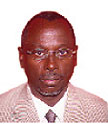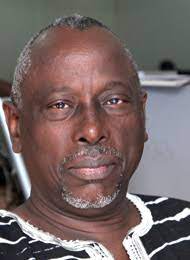If you want to feel the political pulse of any country, check its youth, especially students. Generally, they will show you whether the government of the day is popular or, more likely, how reviled it is; whether it is progressive or reactionary.


If you want to feel the political pulse of any country, check its youth, especially students. Generally, they will show you whether the government of the day is popular or, more likely, how reviled it is; whether it is progressive or reactionary.Where there is repression or dictatorship, students are the first to show discontent and often express it in the most vociferous and forceful fashion. You may put this to one on a combination of several reasons. It may be due to the impatience of youth, for instance, with a real or perceived slower and incompetent older generation. Or it could be because of fearlessness (some would say, recklessness) of the young. Again, a general inclination to subversion and irreverence may explain students’ famed anti-establishment reputation. For the more politically attuned, the explanation may lie in irreconcilable ideological divergence.Whatever the reason, the youth and students are usually not shy to express their opposition tendencies. They actually revel in anti-government views and activities, touting this as a stamp of courage and independence and reason for their claim of fame.And so, young people will prove their independence in several, often extreme ways – through strident rhetoric or indifference and apathy towards government plans and programmes.Even in situations where young people may be dragged into taking part in pro-government activities, as Idi Amin sometimes did in Uganda in the 1970s, they will go about with a visibly menacing sullenness and a palpable resentment that scares even a tyrant like Amin.In general, you might say that the behaviour of young people, particularly university students, is a good sensor for opposition to the government in power.But there are exceptions where students embrace and identify completely with the government and leaders of a given age.This seems to be the case with Rwanda and President Paul Kagame today. But then in many ways Rwanda continues to defy conventional wisdom. It stubbornly refuses to be placed into a compartment. Which is why, I suppose, Rwanda is so exasperating to people accustomed to putting things – including such difficult ones like people and countries – neatly into pigeonholes.To young people in Rwanda – and from what I hear, outside the country as well – President Paul Kagame is some sort of super star. That obviously comes as a shock to many who don’t or choose not to understand him and the country. They think (more correctly, wish) he should be reviled as others have been. But no, he still draws a lot of adulation from his fans (and they are exactly that).To be fair, stardom does not sit easily with him. He may like the attention he gets, but he appears uncomfortable with it. You might say it has been thrust on him.In Rwanda, young people show uncharacteristic enthusiasm towards the government and its leaders. They display an eagerness to play a role in the development of the country – not by blaming all its problems on the leaders and plotting to overthrow them, but by supporting their efforts. They want to be part of the solutions to the country’s challenges and not a misdirected subversive force. Instead, they glory in national achievements.In Marxist language of old, the youth, students and a few other groups used to be described as the vanguard of development. In Rwanda, they actually are. And that is typical of countries on the move.Why is Rwanda such an exception and why does Paul Kagame enjoy the admiration of the youth where other leaders work hard to manufacture non-existent affection from their citizens?Watching President Kagame and his ministers interact with students and other youth reveals part of the explanation for this unusual behaviour.They are valued and looked at as partners, not as upstarts and impatient competitors for power they would not know what to do with. They are urged to be leaders of today and are not made to suffer the frustration of waiting for a distant tomorrow.The Rwandan leadership is honest with its youth, telling them that the work ahead is difficult and demanding. They do not promise a paradise that they cannot deliver and therefore cause more frustration. On the contrary, the leaders challenge young people to exert themselves more to surmount the challenges and help build a paradise for all.Like a good teacher, pastor, coach, counsellor, even the wise peer all rolled into one, President Kagame motivates and inspires them to a greater sense of national awareness.In turn, the students hold him in such high esteem for being steadfast, sticking to principle, standing up to bullies and fighting against injustice.In many ways President Kagame is the ideal role model for Rwanda’s youth. That is the source of his stardom. Rwanda’s achievements are a source of pride for them. Together, they make Rwanda’s youth different.


